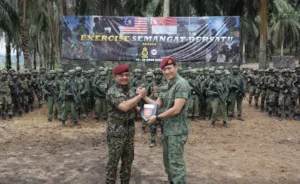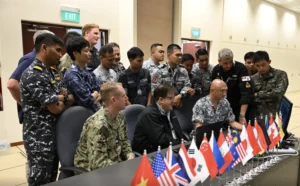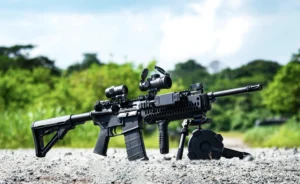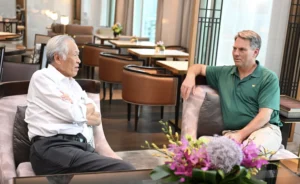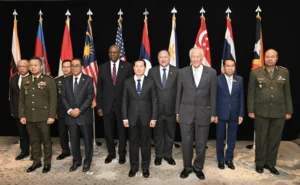SAF’s new 4th service will serve as front-line force in the digital domain: Ng Eng Hen
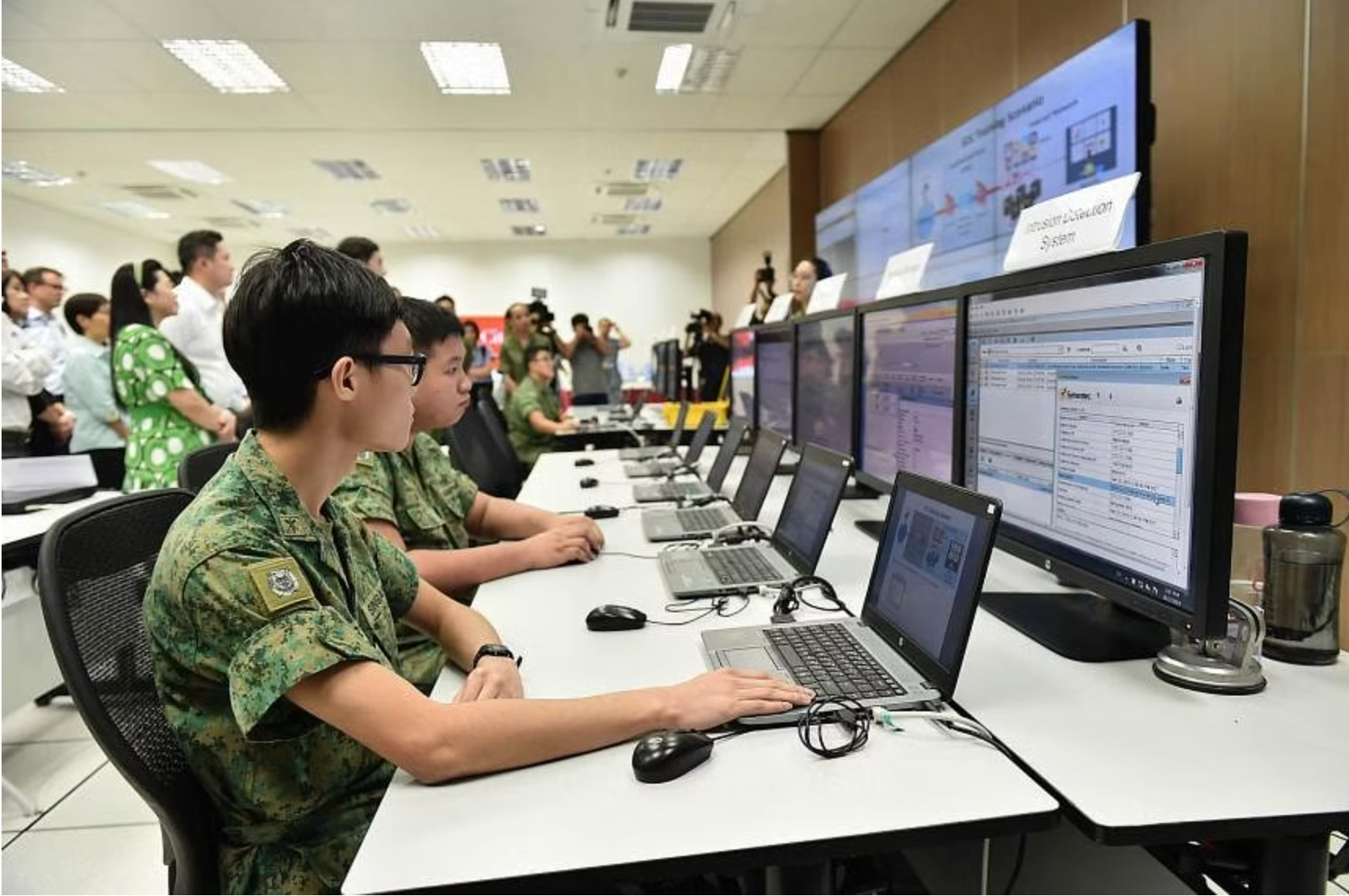
SINGAPORE – A new fourth arm of the Singapore Armed Forces (SAF) will serve as the front-line force in the digital domain to detect, mitigate and repel any potential aggressors that seek to do Singapore harm, said Defence Minister Ng Eng Hen.
While cyber threats occur in the thousands and even millions every day, there are some that have “the most pernicious intent and seek to undermine our nation’s sovereignty or security”, he told Parliament on Tuesday (Aug 2).
He was speaking during a debate on a Bill – which was later passed – that paves the way for the formation of the Digital and Intelligence Service (DIS) by the end of this year.
Dr Ng said: “For the SAF, it has asked itself this simple question, just as it does if the threat came from the air, land or sea: How does it detect, mitigate or repel any potential aggressor – an orchestrated cyber attack by state and non-state actors – that means to do Singapore and Singaporeans harm?”
The answer is a dedicated service to raise, train and sustain cybertroops and capabilities to defend the Republic’s digital borders, he said, describing the DIS as “the force on the front line” in the digital domain.
He gave examples of cyber attacks on critical infrastructure that have occurred recently around the world, such as one in the United States last year which resulted in gas supplies being cut off to many south and east coast states for at least two weeks.
While intelligence agencies have not detected any coordinated campaign against Singapore in the digital domain, it would be prudent to build up the fourth service now, he said.
“That alone would serve as a deterrent.”
Besides amending the SAF Act to formally set up the DIS as the fourth military service, there were disciplinary and administrative changes, as well as related amendments to the Constitution.
They authorise the DIS chief to be a member of the Armed Forces Council, have legal powers to discharge his duties, and to lead the DIS in times of conflict.
The proposed changes also designate the DIS chief as an appointment made by the president acting in his discretion – similar to those of the Chief of Defence Force and other service chiefs.
More than 10 MPs spoke during the debate on the DIS, including talent recruitment and retention, potential coordination with other government agencies, and how conflicts in the digital domain will be defined.
They included Mr Vikram Nair (Sembawang GRC), who asked if DIS recruits must also undergo the same type of training as other soldiers, such as physical fitness tests, and if so, whether this means losing out on people with relevant expertise but not other military skills.
In response, Dr Ng said two main reasons led to the decision to form the DIS – the need for talent and to have a “mission mindset”.
Forming a formal fourth service on a par with the army, navy and air force is the best footing for the DIS is to attract the right type of people it needs, he said.
“It provides their new entrants and existing staff career paths and progressions on par with the army, navy and air force, including for those with the aptitude to be Chief of Service and even to be the Chief of Defence Force.”
In its current configuration, the command, control, communications, computers and intelligence (C4I) community is a supporting force akin to combat support, logistics and maintenance, said Dr Ng.
It will continue to perform its role of providing the three services and the SAF actionable timely intelligence and to ensure that communications are secure to execute plans.
“But with the DIS as a formal service, it is now also directly responsible and accountable to protect the cyber domain against external aggressors.
“As cyber warriors there, they are front-line troops. This mindset shift is crucial for the SAF as it builds the DIS,” said Dr Ng.
This is why the DIS needs “a military man in a uniform to have the military mindset” and not a civilian chief, he said.
Dr Ng also said that while the right military values and mission mindset are needed for a DIS soldier, an individual with the right aptitude can join the service even if he is not best suited for physical combat.
Leader of the Opposition Pritam Singh said that while the Workers’ Party (WP) has no fundamental objection to the new appointment of Chief DIS and “substantively” supports the SAF and Other Matters Bill, his party will vote against the Constitution (Amendment) Bill as a matter of principle.
He said the WP had in 2016 called for the elected presidency to return to its original form as an appointed office without blocking powers to focus on being a unifying figure for the nation rather than having any confrontational role with the elected government.
The WP had also previously raised in Parliament the prospect of gridlock should an elected president withhold nominations to key appointments, he added.
“In view of the Workers’ Party’s position on the elected presidency, we will vote against the Constitution (Amendment) Bill as a matter of principle,” he said.
The Constitution (Amendment) Bill was passed with 75 MPs voting for it, with eight against and no abstentions. This cleared the 63 votes required for changes to be made to the Constitution.
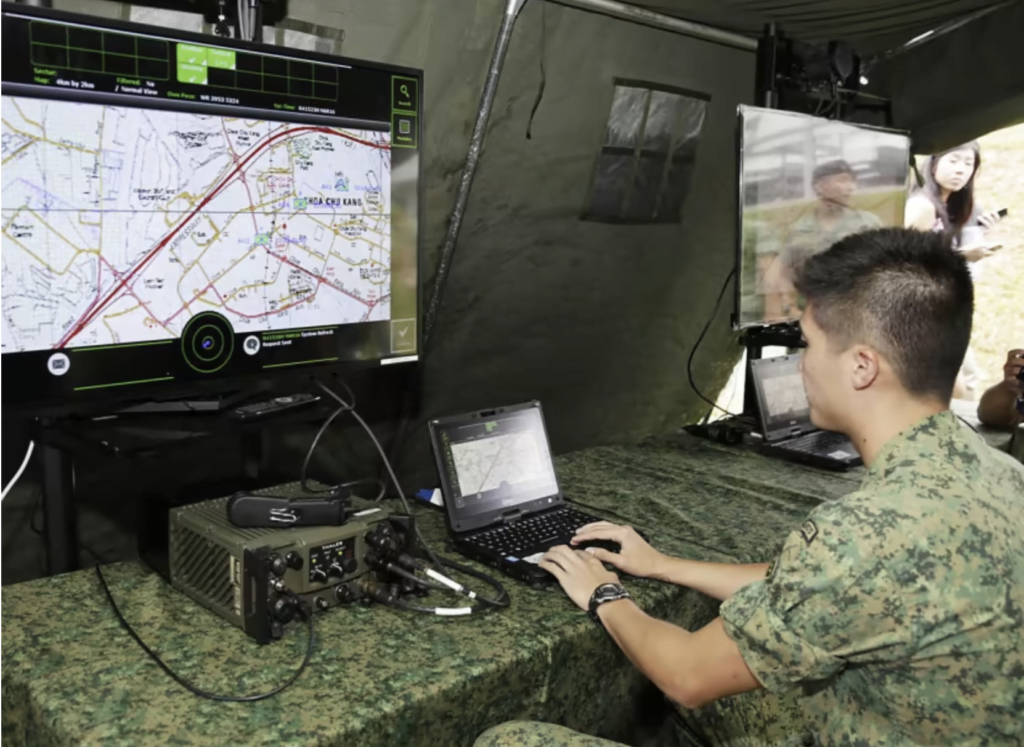
Other changes made to the SAF Act
1. A three-year limitation period for the trial of offences in military courts has been amended to allow it to start later in some situations.
The default limitation period under the SAF Act had required a serviceman to be tried within three years from the date the offence was committed or the date the offence was reported to a disciplinary officer or military policeman, whichever was later – after which, the serviceman can no longer be dealt with under the SAF Act.
2. The Ministry of Defence (Mindef) can now offer composition for minor military offences. This was not an option for Mindef previously.
Amendments were passed to allow for composition fines up to a cap of $5,000, or half of the maximum fine prescribed for the offence, or half the maximum fine that may be imposed for the offence at summary trial, which ever is lowest.
This is meant to resolve minor offences efficaciously while maintaining deterrence.
3. A senior military expert of a rank of or above ME8, when it is created, will be subject to the same disciplinary processes as another officer of or above the rank of a Brigadier-General.
